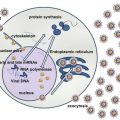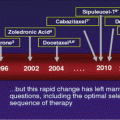© Springer International Publishing Switzerland 2015
Jean-Pierre Droz, Bernard Carme, Pierre Couppié, Mathieu Nacher and Catherine Thiéblemont (eds.)Tropical Hemato-Oncology10.1007/978-3-319-18257-5_5Precarity, Social Organization, and Outcome on Cancer Management in the Tropical Areas
(1)
Department of Internal Medicine, Faculty of Medicine, University of Botswana, Gaborone, Botswana
(2)
Department of Oncology, Skane University Hospital, Lund, 221 85, Sweden
Keywords
PrecaritySocietyCancerEducationTropicsPrecarity can be defined as a condition of existence without predictability or security, affecting material and/or psychological welfare; often, it is linked to and derives from unemployment. Precarity is a common everyday condition for the majority of healthy people living in tropical countries. A cancer diagnosis determines a condition of precarity even in those who have not experienced it before and obviously worsens the condition in people already affected; can the social organization in tropical, developing countries alleviate precarity or rather contribute to it?
Cancer management in the tropical areas faces several problems. Apart from the common clinical challenges shared globally, the task is further complicated by socioeconomic, cultural, and educational difficulties and shortcomings.
The healthcare systems in the tropical areas have, rightly so, focused on communicable diseases. In view of the increasing cancer burden also in the developing world, there is however a growing awareness of the healthcare problem of cancer [1]. The increasing focus on cancer has led to the development of cancer care programs including community education in prevention and self-examination, screening, diagnostics, treatment, and palliative care; such initiatives in the tropical areas share common challenges. To properly address cancer care, the disease burden needs to be known; unfortunately, in the vast majority of tropical countries, this knowledge is sparse. The lack of reliable cancer registries complicates the needed society efforts to improve cancer outcome; indeed knowledge of the epidemiology of cancer in general and of cancer in specific organs is essential to establish societal and medical community educational programs and to build medical facilities for both diagnostics (including imaging and pathology) and treatment, i.e., radio- and chemotherapy. The cancer demographics need to be known to identify possible region-specific risk factors, i.e., infectious, lifestyle related, or environmental, as well as to be able to address specific clinical issues for the various regions, e.g., triple negative breast cancer in African women. Ongoing efforts to establish cancer registries [1, 2] will hopefully allow to both define and meet the specific national/regional needs and shortages in cancer management in tropical countries.
Poor cancer awareness greatly contributes to the poor outcome in cancer in the developing world, as it is not limited to the public but extends to the medical community [3]. Lack of knowledge reduces the possibility of prevention and early detection, delays proper medical management, and opens up for traditional alternative treatments, ultimately resulting in a negative outcome due to advanced disease at presentation, delayed diagnosis and treatment, and probably premature cessation of prescribed therapy [3].
Improved awareness is also needed to increase the public’s trust in western medicine. At difference with the western world, a major challenge in tropical countries is the culture and developed industry of alternative medical practices such as prayer camps, herbalists, and traditional healers. In rural areas of poor tropical countries, people have access only to “real” traditional healers who are the backbone of a particular “health system.” Indeed in many countries the “complementary and alternative” medicine is the recently imported western medicine rather than the traditional medicine, based on herbs and spiritual healing (prayers and faith), which has been part of the everyday life of populations for millennia. The strength of the traditional healing system lies in its low cost, in its sharing of the world vision and belief system of its users, in being an alternative to an inefficient western-type healthcare system, in the privacy and absence of time limitations per consultation, and in treating patients psychologically. However, the traditional healing system often uses harmful treatment regimens, prolongs the search for more appropriate healthcare, and contributes to destroying interpersonal relationships of people with cancer through witchcraft accusations. Many patients in tropical areas continue to consider cancer as due to spiritual forces beyond the reach of biomedicine [4, 5], and the fact that most of those patients who manage to present to healthcare facilities and to receive conventional western medical treatment die gives people the impression that western medicine is not better for cancer.
Stay updated, free articles. Join our Telegram channel

Full access? Get Clinical Tree





